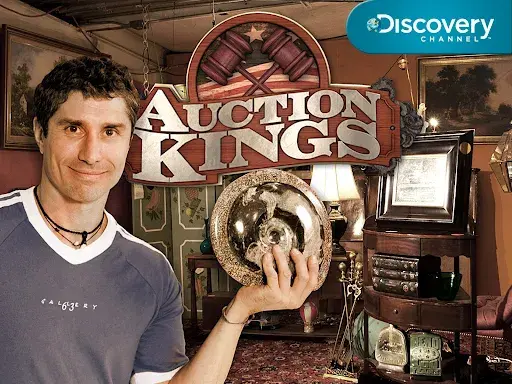Freeman’s Will Offer Declaration of Independence Copy Given to Charles Carroll of Carrollton

Writing under the pseudonym “First Citizen,” Charles Carroll of Carrollton sent a scathing critique of the government’s abuse of powers to the Maryland Gazette in 1773. Carroll wouldn’t remain anonymous for long, quickly finding himself at the center of the impending American Revolution. In 1776, he joined Benjamin Franklin and others to seek aid from the colonies in present-day Canada. Later that same year, Charles Carroll of Carrollton traveled to Philadelphia and signed the Declaration of Independence.
To commemorate this historical document, Secretary of State John Quincy Adams led an effort to produce high-quality copies of the Declaration of Independence in 1820. The United States Congress commissioned William J. Stone for this project and planned the distribution of 200 copies. Among the recipients were the three surviving signers of the original document: Thomas Jefferson, John Adams, and Charles Carroll of Carrollton.
On July 1st, 2021, Freeman’s will offer a copy of the Declaration of Independence presented to Carroll in 1824 (estimate: USD 500,000 – $800,000). Before the single-lot sale begins, learn more about Charles Carroll of Carrollton and this document.
The First Citizen: Charles Carroll of Carrollton

While still studying in England, Charles Carroll of Carrollton wrote to his father that the Thirteen Colonies, especially his native Maryland, “will, and must be independent.” This was in 1763, a decade before Carroll adopted the pen name “First Citizen” and became a public opponent of British rule.
Carroll’s upbringing was one of contradictions. Though his family’s immense wealth allowed him to study around the world at an early age, his Catholic faith restricted his opportunities. Carroll’s grandfather moved to the Maryland colony from Ireland to flee religious persecution. Yet, as a Catholic, Charles Carroll of Carrollton could not receive a proper education in Maryland and faced similar roadblocks during his studies in England and elsewhere. Carroll sought religious freedom first and foremost in any new American government.
Catholics were still technically barred from holding public office in Maryland when Charles Carroll of Carrollton was elected to represent the colony at the 2nd Continental Congress. This rule was conveniently overlooked, though. By that time, Carroll had earned goodwill through his “First Citizen” letters and his (albeit unsuccessful) campaign to acquire support from the colonies in present-day Canada. It also certainly didn’t hurt that Carroll was, at that point, the wealthiest person in America.

At the 2nd Continental Congress, Charles Carroll of Carrollton joined 55 other representatives in signing the Declaration of Independence. He was also the only Catholic among them. The copy of the Declaration of Independence available in this Freeman’s sale shows each man’s signature, including Carroll.
Carroll never resided full-time in his Carrollton estate. However, he used “of Carrollton” to distinguish himself from others with the same name. Legend has it that John Hancock pressured Carroll to sign his name this way on the Declaration of Independence so he could not pretend it was a different Charles Carroll. However, no historical evidence confirms this.
Copy of the Declaration of Independence
Coming to auction with Freeman’s is one of 200 copies of the Declaration of Independence produced by William J. Stone between 1820 and 1824. It is also one of only six copies presented to the last three surviving signers of the Declaration of Independence and the only one believed to still be in private hands.
By 1824, only Thomas Jefferson, John Adams, and Charles Carroll of Carrollton were still alive among the Declaration’s signers. Each received two copies. Both of Adams’ copies now reside in the Massachusetts Historical Society and Jefferson’s are believed to be lost to time. Meanwhile, Carroll put these items in the care of his grandson-in-law, John MacTavish. The Maryland Historical Society holds one of these copies, and the winning bidder in this sale will claim the other. This example comes to auction with only light folds and soiling.
John Adams’ son, John Quincy Adams, pushed for the copies’ production. He and others worried that the original Declaration of Independence was already deteriorating. The document was often subjected to the elements and unfurled for visitors with little care for long-term wear and tear. To John Quincy Adams, the copies not only signified the preservation of a physical document but also the ideas held within it.

On July 4th, 1826, both John Adams and Thomas Jefferson died, leaving Charles Carroll of Carrollton as the only living signer of the Declaration. By that time, Carroll had enjoyed a long career in politics, serving in the United States Senate and the Maryland State Senate. However, in his later years, Carroll focused more on his business dealings.
Despite being a victim of persecution himself, Carroll earned much of his wealth through slave labor. He bought and sold enslaved people, owning around 300 at all times. While Carroll backed some legislation that would slowly grant freedom to enslaved people, there is no evidence that he ever freed anyone from his own estate. Collectors will have to decide how to handle memorabilia related to Charles Carroll of Carrollton, as they would with similarly problematic historical figures, such as Thomas Jefferson.
The single-lot sale of a copy of the Declaration of Independence begins on July 1st, 2021, at 12:00 PM EDT. Interested collectors can view the lot and register to bid on Bidsquare.
Want to learn more about historical items crossing the auction block? We recently looked at the history of witch trials and the 1584 book The Discovery of Witchcraft by Reginald Scot ahead of a Bonhams sale.









